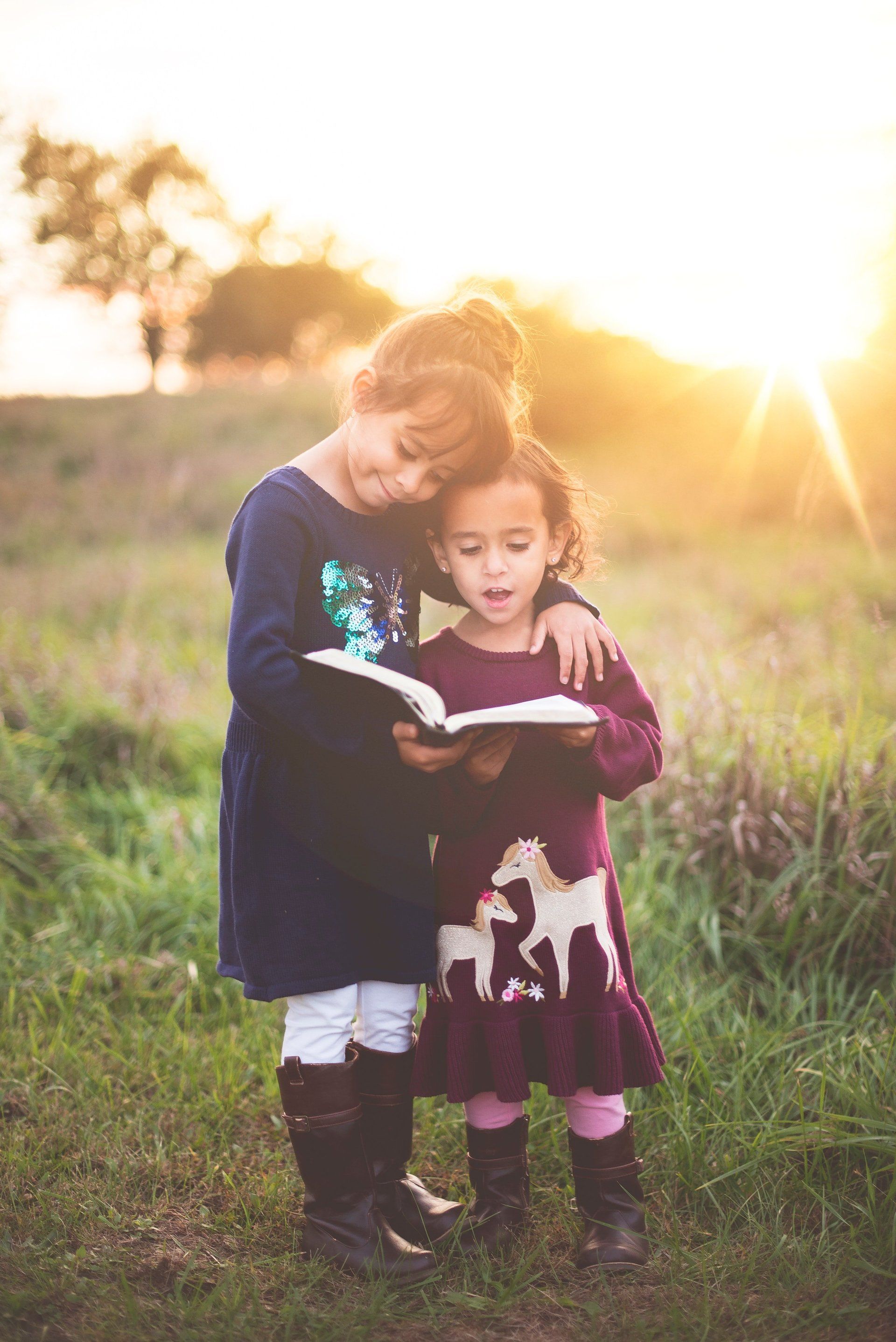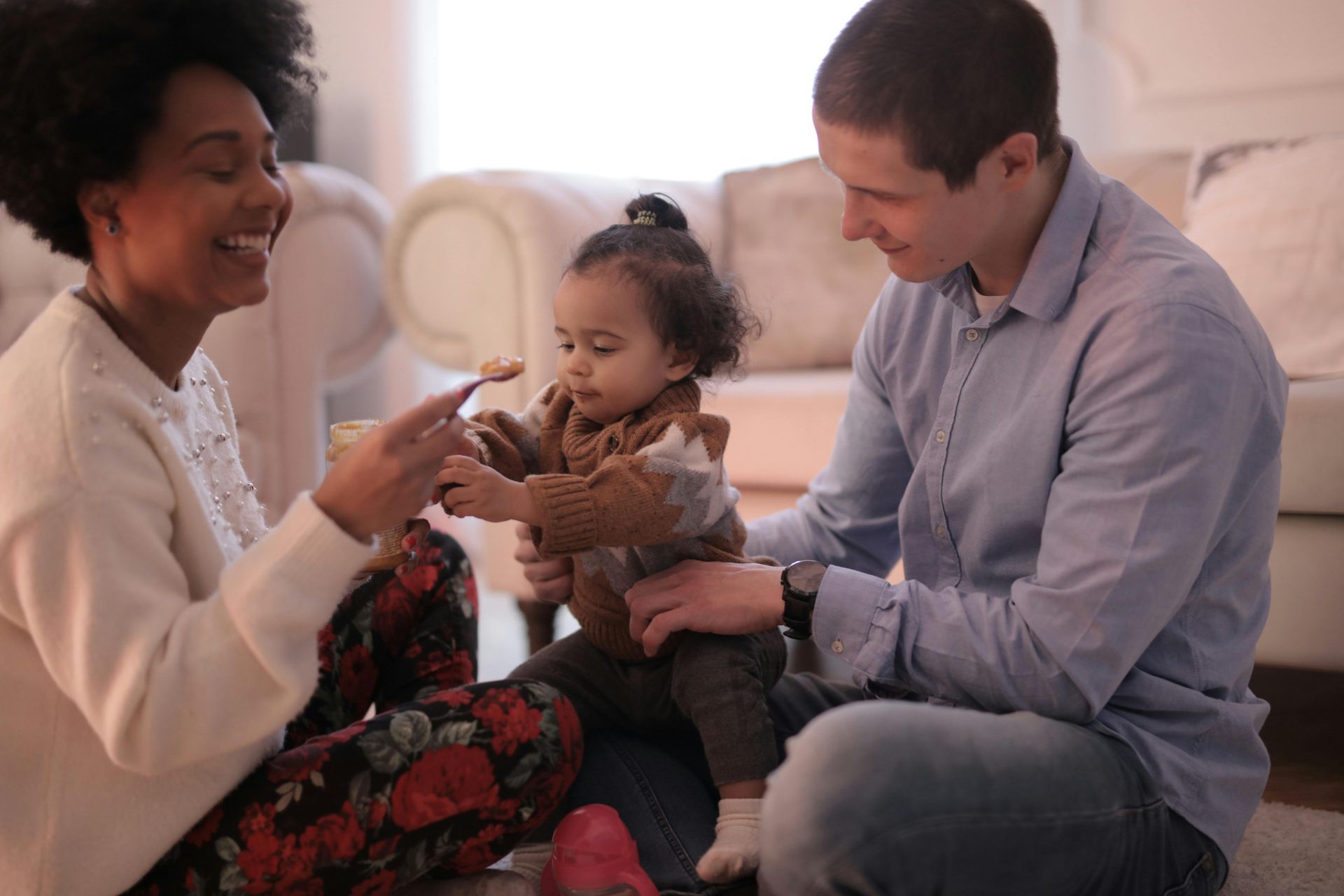If someone had a camera on me the first few weeks of both my babies’ lives, it would have seemed a little ridiculous. There I was, sitting in the rocking chair, reading out loud like I was a librarian at story time. By all appearances, my girls didn’t care that much. They stared at my face, watched my lips move. But by eight weeks in, after days and days and books and books (come on, you know it’s either watch TV, read or take a walk in those first few months) you could tell something was at least catching their interest.
We’ve kept on reading. Now that my oldest is almost four, she loves to read. She could go for hours – “Again mommy, read it again PLEASE? My Alphabet Book? Elmo Book? Olivia Book? Monkey Book? Again?” Now there’s a new challenge for me: I have to keep myself from treating prolonged reading sessions like a chore. You know, the persistence of toddlers, it’s pretty amazing (and PERSISTENT). I take a deep breath, put my phone out of my reach, settle in and prepare to share some stories because it’s worth it, not only for me to spend time focused on her, but also for her development.
Reading and talking to our children enhances communication, reducing frustrations as they learn to ask for what they want and need, but also fostering social connections and building parent-baby bonds. Research shows that the more words parents use when speaking to an eight-month-old infant (it can be a difference of 30 million words from one family to another!!), the greater the size of their child's vocabulary at age three.
The families I see in clinic ask me a lot about specific steps they can take to prioritize reading and to develop communication skills for their kids. They probably hear enough stories about my two little chatterboxes to realize I’ve practiced what I preach in this area, especially during the first three years of life.
Here are my most successful strategies:
1. I talk a bunch myself.
The people at the grocery store probably think I have an imaginary friend, the way I talk to my babies as we cruise through the aisles.
“Hey, look at those beans. Ooh, they’ll be so yummy in our tacos tonight…and how many mangoes should we buy today? Let’s get a really ripe yellow one.”
We’re constantly narrating our activities in my house. We’re also intentional about narrating the emotions we see come up from an early age.
“You’re so excited to see daddy! Look at you flap those little wings of yours. Your arms are going a mile a minute! You’re upset and you want to get out of your high chair now? Mommy hears you. I’m coming right now.”
This approach accomplishes three things: it builds your relationship with your child as you give them your attention, it lays the ground-work for emotion-coaching in the toddler years, and it builds complex vocabulary.
2. I emphasize book-reading.
This is probably obvious, but there are some nuances to my book lover training plan.
For starters, we have tons of books in the house. The bedrooms, the playroom, the living room - there are as many books as there are toys. It’s the main gift I ask for when it comes time for birthdays and holidays. This allows our kids to use them like they would any plaything. They can pick them up when they're interested, then move on when they are done. I make it a point to not force them to continue a book if they are not still engaged with it.
This was an interesting lesson for me to learn with my second daughter. She did not have the natural affinity for books my first child did at the beginning and, I’ll admit, it made me wonder if I should just let her play with other things and stop offering to read to her. I’ve had a lot of parents tell me they did just that. At the six-month visit: “Well, he just chews on the books, I don’t think he cares.”
In reality, it might be that they’re shutting the (reading) door a little too soon. My little one used to just drag the books around the kitchen, leaving them in every corner. When we went to show her the pictures or read her the words, she would close the book on your hand as if to say, “We’re all done here.” But, slowly, over time, I saw her start to open them up on her own, point and say, “dat, dat” until we came over and verbally labeled the cat and the dog in front of her. Now, she loves crawling into our lap and reading along with us.
3. I speak in more complex, adult language when possible.
When my baby says, “dow, dow” and I know she wants to get down, I repeat after her, “Yep, you would like to get down, down. Let’s get you down on the floor to play.” I can’t always manage it (I know, shocker based on my writing) but I try my hardest to slow down when I’m talking with her so she can hear me articulate. When babies are first born, research also heavily supports using a “singsong” voice to echo back the “goos” and “coos” they make.
4. I don’t stress out about early stuttering.
When kids are about to have a language explosion, a lot of times they will stutter. This typically scares everyone, but it especially scares grandparents. They wonder if there is a long-term speech impediment on the horizon. While all children are different, for most kids this simply represents a massive amount of organization and processing in their young minds, and is actually a kind of exciting sign that their development is really about to take off!
With all the distractions in the world, it really can seem like an imposition on our busy schedules to emphasize reading and communication but, it turns out, reading aloud and talking to young children is not only one of the best activities to stimulate language and cognitive skills, it also builds motivation, curiosity, and memory. Even more fascinating, reading aloud and talking stimulates language development even before a child can talk.
So, it turns out maybe I wasn’t so extreme after all, sitting in that rocker, reading my novel out loud to my snoozy newborns. They’ll thank me for it later, when they’re sitting in their own rockers, watching their sweet little babies drift in and out of sleep to the awesome sound of their mommy or daddy’s voice reading a book.















